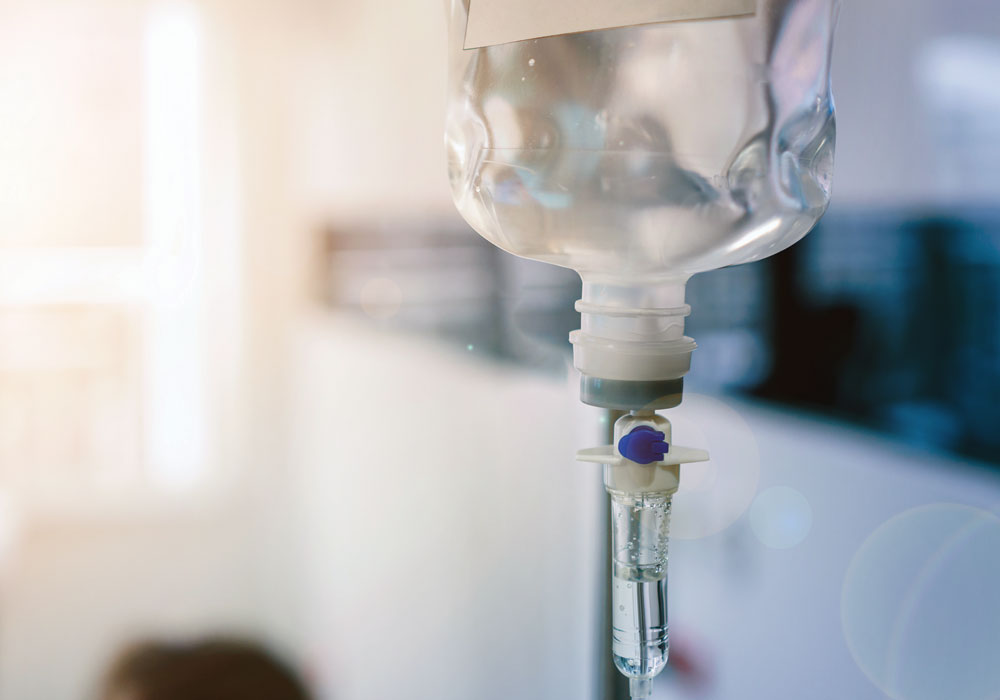After clinical trials demonstrated an overall response rate of 36% and median response duration of 10 months, the U.S. Food and Drug Administration granted sotorasib (LumakrasTM) accelerated approval on May 28, 2021, for the treatment of adults with KRAS G12C–altered locally advanced or metastatic non-small cell lung cancer (NSCLC), as determined by an FDA-approved test, who have received at least one prior systemic therapy.
Category/Class
Targeted therapy; KRAS inhibitor
Mechanism of Action
Sotorasib inhibits KRAS G12C, an oncogenic form of the KRAS protein, forming a bond that locks the protein in an inactive state without affecting wild-type KRAS, ultimately blocking KRAS signaling, inhibiting cell growth, and promoting apoptosis in tumors with a KRAS G12C driver variant.
Indication
Treatment of adults with KRAS G12C–altered locally advanced or metastatic NSCLC, as determined by an FDA-approved test, who have received at least one prior systemic therapy
Dosing and Administration
Take 960 mg (eight 120 mg tablets) orally once daily, with or without food, at the same time each day. Do not chew, crush, or split the tablets. Consult pharmacy for options for patients who are unable to swallow tablets. If patients miss a dose by more than six hours or vomit after taking sotorasib, skip that dose and take the next dose as prescribed the following day.
Adverse Reactions
Common adverse reactions (≥ 20%, all grades) reported in the clinical trials were diarrhea, musculoskeletal pain, nausea, fatigue, hepatotoxicity, and cough. The most common grades 3 or 4 laboratory abnormalities (≥ 2%) were increased alanine aminotransferase, aspartate aminotransferase, urine protein, or alkaline phosphatase and decreased lymphocytes. A rare but serious adverse reaction of interstitial lung disease (ILD) or pneumonitis may occur. The drug is still being evaluated, and all serious adverse events that may be associated should be reported to FDA’s MedWatch Reporting System.
Nursing Considerations
Ensure biomarker testing is completed to verify the KRAS G12C driver variant in tumor or plasma specimens. If the variant is not detected in a plasma specimen, test tumor tissue.
Confirm a negative pregnancy status in females of reproductive ability prior to starting therapy. Monitor liver function levels prior to starting treatment, every three weeks for the first three months, and then once a month or as needed for the remainder of treatment. Monitor patients for pulmonary symptoms indicative of ILD or pneumonitis, such as cough, dyspnea, or fever.
Complete a comprehensive medication review, including prescription medications, over-the-counter medications, vitamins, and supplements prior to therapy. Patients should not take gastric acid-reducing agents (proton pump inhibitors, H2-receptor antagonists, locally acting antacids) while on sotorasib. If required, sotorasib should be administered 4 hours before or 10 hours after a locally acting antacid. Do not coadminister with P-gp substrates, strong CYP3A inducers, and CYP3A4 substrates.
Patient Education
Educate on the side-effect profile and when to notify the healthcare team, specifically the signs of worsening respiratory symptoms (e.g., trouble breathing, shortness of breath, cough, fever). Inform about the need to monitor liver function labs and the testing frequency. Tell patients to avoid breastfeeding during treatment and for one week after the final dose. Instruct the proper dosing and administration for successful oral adherence.
Gero-Oncology Considerations
Of 357 patients with any tumor type who received sotorasib 960 mg daily in the clinical trial, 46% were aged 65 or older and 10% were 75 or older. No clinically significant differences in safety or effectiveness were observed between younger and older patients.
Safe Handling
Carcinogenicity, fertility, and early embryonic development studies have not been performed.
Patient Assistance
Amgen Assist 360 is available online or at 888-427-7478.






